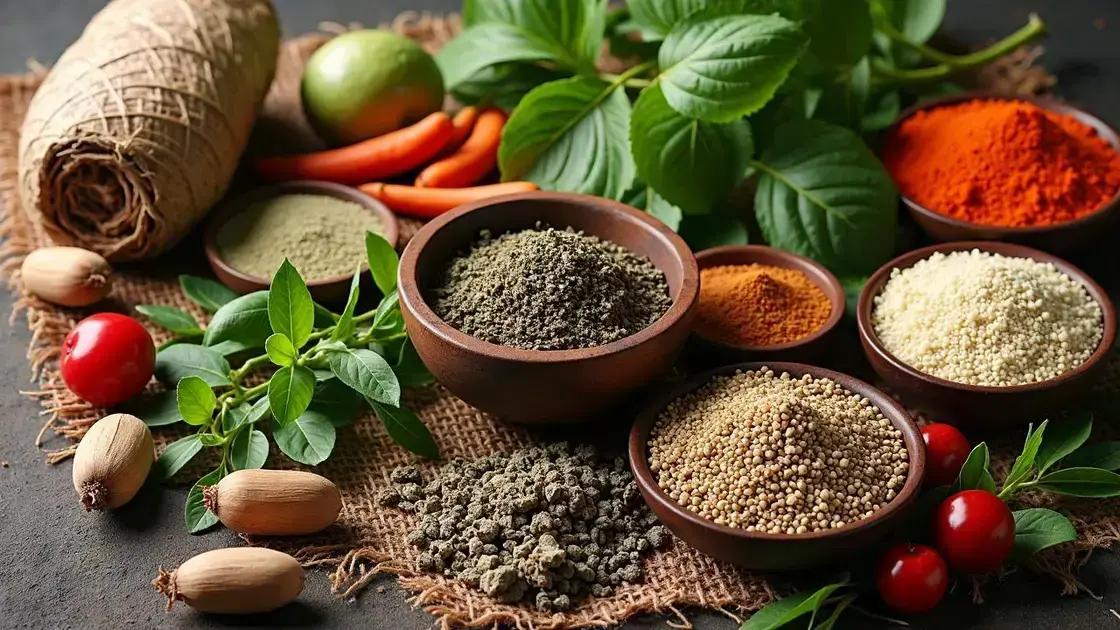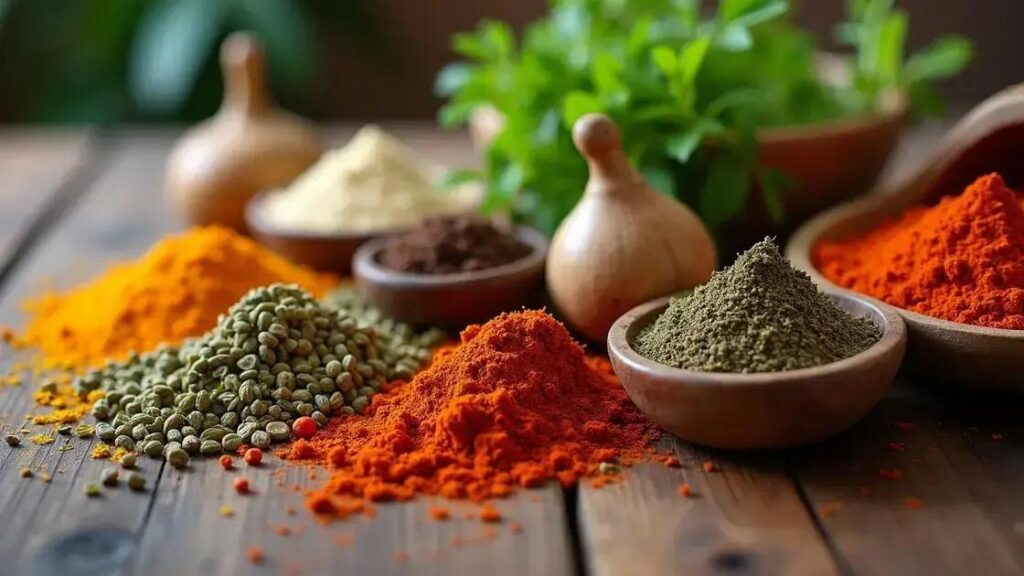African recipes can complement medications by providing nutritional benefits, enhancing health, and offering natural remedies for various conditions, though they should not replace conventional treatments.
The curiosity about the efficacy of traditional remedies vs. modern medications has gained traction recently. Are African recipes a realistic replacement for medications? With increasing interest in holistic health and natural healing, many are turning to these age-old practices. This article delves into the role of African recipes, exploring how they may complement (but not replace) modern medical treatments.
Understanding African Recipes and Traditional Medicine

African recipes are more than just meals; they are steeped in history and cultural significance. Traditional medicine in Africa often incorporates the use of herbs, spices, and natural remedies, passed down through generations. This practice emphasizes the connection between food and health, where what we consume plays a crucial role in our well-being.
What Are African Recipes?
African recipes vary widely across the continent, influenced by local ingredients, climate, and cultural practices. Common ingredients include leafy greens, root vegetables, and a variety of spices, each known for their health benefits. Many dishes are not only nutritious but also serve therapeutic purposes.
Traditional Medicine Practices
In many African cultures, traditional medicine is based on the knowledge of plants and their healing properties. Herbalists or traditional healers often prescribe specific recipes tailored to individual needs. This practice aligns with an important belief: health is holistic, encompassing not just physical symptoms, but also emotional and spiritual well-being.
The Role of Community and Elder Knowledge
Community elders play a significant role in preserving and sharing knowledge about African recipes and traditional medicine. Their experience and teachings ensure that valuable insights about health and healing are not lost. Many people still rely on these remedies for treating mild ailments, elevating the recipes to vital components of healthcare in their communities.
With growing interest in natural remedies, more individuals are exploring how these unique African recipes can contribute to their overall health and whether they can stand alongside modern medical practices. By appreciating the rich medical history embedded in these recipes, we open doors to understanding how traditional and modern medicine can coexist.
How African Recipes Can Complement Medications

African recipes can play a critical role in enhancing health and wellness, complementing medications in various ways. While modern medicine is vital for treating diseases, traditional recipes can provide additional support for the body. These recipes often include ingredients rich in vitamins, minerals, and antioxidants, which can boost overall health.
Nutritional Synergy
Certain African recipes are known for their nutritional benefits. For example, dishes made with dark leafy greens, beans, and grains not only nourish the body but also improve the immune system. This synergy allows medications to work more effectively, as a well-nourished body can better absorb and respond to treatment.
Natural Remedies for Symptoms
Many African recipes incorporate plants with natural healing properties. For instance, ginger and garlic are popular ingredients that can aid digestion and reduce inflammation, respectively. By using these ingredients alongside prescribed medications, individuals may experience relief from symptoms without relying solely on pharmaceutical solutions.
Psychosocial Benefits
Cooking and sharing African recipes can also have psychosocial advantages. The act of preparing food can foster community and connection, which is essential for emotional health. A positive state of mind can improve healing outcomes and help individuals cope with the stresses associated with illness and treatments.
Furthermore, integrating African dietary practices into one’s routine may encourage healthier lifestyle choices overall, supporting both physical and emotional wellness. This approach can lead to a balanced method of managing health where medications and natural remedies work together harmoniously.
Real-Life Success Stories of African Recipe Use

The power of African recipes can be seen in numerous real-life success stories. Many individuals have experienced significant health improvements by incorporating these recipes into their daily diets alongside prescribed medications.
Case Study: Herbal Remedies for Diabetes
One success story involves a woman in Nigeria who was diagnosed with diabetes. She decided to add bitter leaf soup to her meals, known for its ability to help regulate blood sugar levels. After several months, she reported healthier glucose levels, allowing her to reduce her medication dosage under her doctor’s supervision.
Using Traditional Recipes for Weight Management
Another story comes from South Africa, where a man struggled with obesity. He turned to traditional African grains like millet and fonio, which are nutritious and low in calories. By replacing processed foods with these grains and focusing on local vegetables, he not only lost weight but also improved his overall health.
Holistic Healing for Chronic Pain
A woman in Kenya shared her journey of dealing with chronic pain. After consulting a traditional healer, she began using a recipe that included turmeric and ginger, known for their anti-inflammatory properties. Over time, she found that her reliance on pain medications decreased, and she enjoyed a better quality of life.
These stories highlight the potential for African recipes to not only complement but also enhance conventional medical treatments, fostering a more holistic approach to health and wellness.
Embracing African Recipes for Better Health
The exploration into whether African recipes can replace medications has revealed a multifaceted approach to health. While they may not serve as outright replacements for conventional medicine, their role in complementing treatments is significant.
Through success stories of individuals incorporating these traditional recipes into their lives, we see tangible benefits in areas such as diabetes management, weight control, and chronic pain relief. African recipes, filled with nutritional value and healing properties, can enhance well-being and foster a holistic approach to health.
Ultimately, embracing these recipes alongside medical advice can lead to a balanced lifestyle, supporting both physical and emotional wellness.
FAQ – Frequently Asked Questions about African Recipes and Medications
Can African recipes replace conventional medications?
While African recipes can complement medications and provide health benefits, they should not be viewed as outright replacements for conventional medical treatments.
What are some health benefits of African recipes?
African recipes often include ingredients rich in vitamins, minerals, and antioxidants, which can boost the immune system and promote overall health.
How can I incorporate African recipes into my diet?
Start by exploring traditional African dishes that focus on healthy ingredients like leafy greens, pulses, and whole grains, and consider using them alongside your regular meals.
Are there any success stories of people using African recipes for health improvement?
Yes, many individuals have reported positive health outcomes, such as improved diabetes management and weight loss, after incorporating African recipes into their diets.
Can I consult with a healthcare provider about using African recipes?
Absolutely! It’s always a good idea to discuss any dietary changes with your healthcare provider, especially when managing health conditions.
Where can I find authentic African recipes?
You can find authentic African recipes in cookbooks, online recipe websites, and food blogs that focus on African cuisine.













